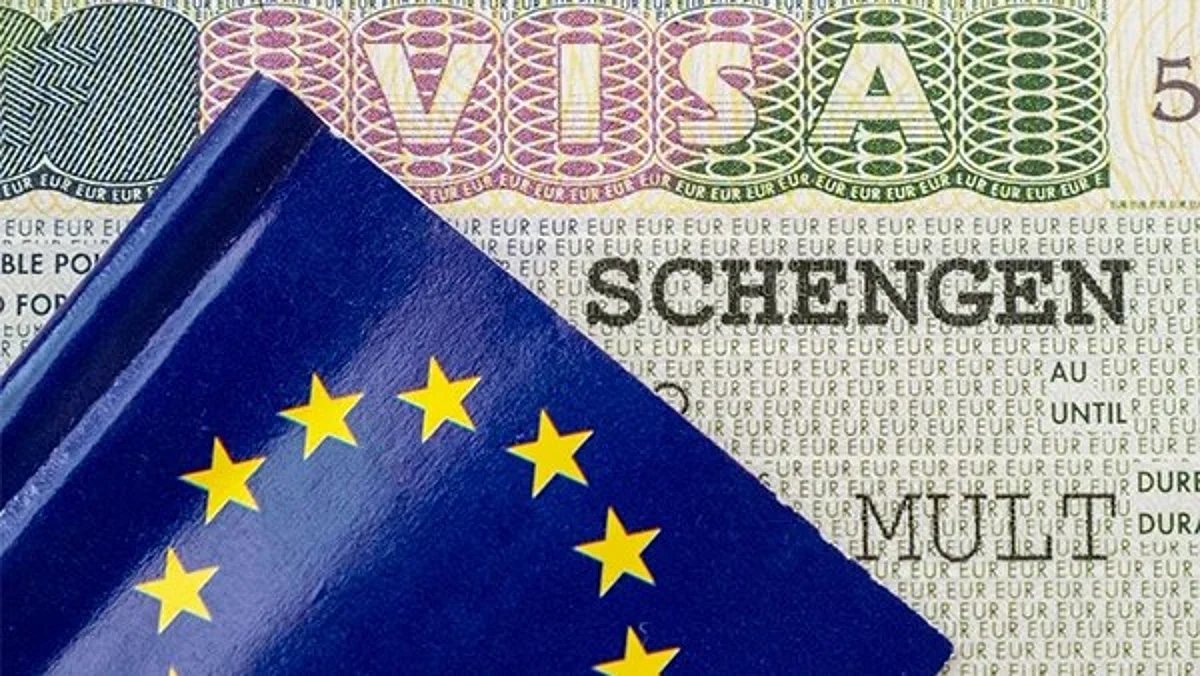Tips & Advices
Is Travel Insurance Worth It?

It’s easy to think you can save money by skipping travel insurance, but there are so many unexpected situations where it’s a lifesaver. Especially since the average cost of a one-week vacation in the U.S. is now more than $2,200 per person.
“Travel insurance is often an overlooked investment until the unforeseen happens,” says Beth Godlin, president of Aon Affinity Travel Practice. “It’s designed to give travelers peace of mind and financial protection against travel risks.”
Find out what travel insurance covers, how much it costs and if it’s the right choice for you.
What does travel insurance cover?
Travel insurance generally covers your expenses, your belongings and your well-being. When shopping for a policy, look for these benefits:
Trip cancellation
If your trip is canceled for a covered reason — including illness or injury, the death of a family member, job loss, deployment and even unplanned jury duty — trip cancellation coverage will reimburse airline tickets, hotel rooms, rental cars, tours, cruises and other prepaid, nonrefundable expenses.
Cancellations can also be covered if a natural disaster, severe weather or airline strike prevents your carrier from getting you to your destination for at least 24 hours.
Trip delay
Trip delay coverage pays for food, lodging and local transportation if a delay is due to severe weather, airline maintenance or civil unrest.
“For a traveler to be eligible, they must be delayed for the minimum amount of time listed on their policy,” said Squaremouth spokesperson Megan Moncrief. “Some policies are very lenient and provide benefits for any length delay, while others list a length requirement, usually somewhere between 3 to 12 hours.”
Daily payout limits range from $150 to $250 per traveler, according to Moncrief, while the total policy limit can be anywhere from $500 to $2,000. Save any receipts to submit with your reimbursement claim.
Trip interruption
Should you need to cut your trip short due to illness or injury — or if there’s a family emergency back home — your policy may reimburse non-refundable expenses you forfeited.
It may also cover the cost of a one-way economy airline ticket home.
Baggage delay
Your policy should cover toiletries, clothes and other essential items you need to buy if your bags are delayed for a certain amount of time. The benefit is usually capped at a specified dollar amount, either by day or total.
Baggage loss
Airlines are required to compensate passengers for luggage lost in transit, but a travel insurance policy may have a higher benefit limit. It could also cover you if your bags, passport or other possessions are lost, damaged or stolen once you’ve gotten to your destination.
Not every loss is covered, though: Cash is not reimbursable and many policies won’t reimburse for expensive jewelry. Read your policy carefully to see what is included.
Medical expenses and emergency evacuation
If you’re traveling abroad, your health insurance likely isn’t valid. Travel insurance should cover doctors’ fees and hospital bills, Durazo said, and the provider can help coordinate care and ensure you’re at a medical facility that is up to U.S. standards.
An emergency medical evacuation can cost anywhere from $15,000 to over $200,000, Durazo added.
What doesn’t travel insurance cover?
While each carrier has different exclusions, travel insurance companies typically don’t cover losses caused by:
- Negligence or illegal activities
- Pre-existing medical conditions (without a waiver)
- Known storms or outbreaks
- Fear of flying or travel
- Pregnancy
- War or civil unrest
- Dangerous activities like mountain climbing, bungee jumping or skydiving
- Reasonably foreseeable events
If bought early enough, usually within 14 to 21 days of booking, a Cancel For Any Reason policy allows you to call off your plans for any reason — including any of the above.
However, you must typically cancel at least 48 hours before departure. CFAR plans typically only reimburse 50% to 75% of your expenses, according to Allianz’s Daniel Durazo, and can bump up the cost by about 40%.
If your policy includes a waiver for pre-existing conditions, a chronic health condition may be covered, as well. You must buy coverage within 14 to 21 days of booking, insure 100% of your nonrefundable trip costs and be medically able to travel at the time of departure.
Certain conditions, including pregnancy, dementia, mental health conditions, and substance abuse issues, are not covered by a waiver.
How much does travel insurance cost?
A travel insurance policy typically costs between 4% and 10% of the prepaid, nonrefundable expenses associated with your trip.
The cost can vary, however:
- Plans with higher limits and more optional coverage cost more.
- A plan with a CFAR benefit can cost up to 40% more.
- Older travelers typically pay more because there’s more of a likelihood of a claim being filed.
Whichever plan you select, read the fine print so you understand what you’re paying for.
Top travel insurance companies
There are many great options in the travel insurance space: Aggregator site SquareMouth lets you get price quotes from dozens of carriers. Because it receives a commission from the insurance companies on its site, there’s no markup or extra fees.
SquareMouth Travel Insurance Marketplace
-
Policy highlights
SquareMouth is a travel insurance marketplace that allows you can compare top-rated providers, including Berkshire Hathaway, Nationwide, Seven Corners and Tin Leg.
-
24/7 assistance available
Pros
- Includes more than 30 travel insurance companies
- You can compare providers side-by-side on the website
- SquareMouth doesn’t add additional markups or fees
- Carriers that don’t adequately address a customer complaint are removed
Cons
- Doesn’t provide travel insurance policies of its own
American Express‘ standalone travel insurance policies offer protections not available as regular cardholder benefits — including emergency medical and dental coverage, medical evacuation and travel accident protection in cases of death or dismemberment.
American Express Travel Insurance
-
Policy highlights
Four standard plans and a build-your-own plan with travel interruption, trip cancellation, baggage and car rental protection. American Express card not required to purchase a policy.
-
Cancel For Any Reason coverage
AmEx does not offer CFAR coverage but Trip Cancel Guard reimburses up to 75% of nonrefundable flight costs up to 48 hours before departure
-
Pre-existing condition waiver
Available if policy is purchased within 14 days of initial trip deposit.
Pros
- Don’t need to be an AmEx cardholder to get coverage
- Emergency medical and travel accident protection offered
- 24-hour assistance available with all plans
Cons
- Basic rates higher than the competition
- Cancel For Any Reason benefit not available
- Trip Cancel Guard only reimburses flight costs
AIG’s Travel Guard® plans are great if you need to customize coverage: The mid-range Travel Guard Preferred plan pays out 100% for trip cancellation and 150% for trip interruption, with up to $50,000 in coverage for medical expenses and up to $500,000 for emergency evacuation. There’s even a payout of up to $1,000 if you miss your connection.
AIG Travel Guard® Travel Insurance
-
Policy highlights
AIG Travel Guard offers Essential, Preferred and Deluxe plans, as well as an annual plan and Pack N’ Go plan for same-day travel. Add-ons include coverage for rental vehicles, pets, adventure sports and wedding cancellations
-
Cancel For Any Reason coverage
Add-on to Preferred and Deluxe plans reimbursing 50% of trip costs if purchased within 15 days of initial deposit.
-
Pre-existing condition waiver
Available with any plan purchased within 15 days of initial trip deposit
Pros
- Adult policies include coverage for one child under 17
- Travel delay benefit of $1,000 is available after five-hour delay.
- Medical care and evacuation limits can be doubled
Cons
- Cancel For Any Reason policies only reimburse up to 50%
- Standard medical coverage limit lower than some competitors
- Not all products are available for purchase online
Faye is an all-online provider with an intuitive app that allows your to file claims completely digitally. It also has the most generous limits for travel delay coverage of any company we’ve reviewed — up to $300 a day and $4,500 per trip standard.
- $4,500 per person trip delay coverage after six hours.
- 100% digital claims process
- Can add coverage for pet care and vacation rental damage
- Only one plan is available
- Rates are higher than some competitors
Is travel insurance worth it?
While government regulations are becoming increasingly stringent about compensating travelers for delayed or canceled flights, limits on reimbursement may still be less than what you spent. And if the airline isn’t to blame, you won’t be covered.
“When deciding if travel insurance is right for you, ask yourself how much you could stand to lose if you had to cancel at the last minute,” Godlin said.
Travel insurance can be particularly useful if:
- You’ve spent a lot on prepaid, nonrefundable expenses
- You’re traveling internationally, where your health insurance won’t apply
- You’re traveling to a remote area or for an extended period
- You have a pre-existing health condition
- You’ve scheduled adventure activities such as skiing, bungee jumping or hang-gliding
- Your flight involves multiple connections or destinations
Travel insurance FAQs
What does travel insurance cover?
Policies vary, but most comprehensive plans cover travel cancellation and interruption, baggage delay and loss, medical care and emergency transportation.
How much does travel insurance cost?
While the price varies by provider, most policies cost between 4% and 10% of the trip’s prepaid, non-refundable expenses.
When should I get travel insurance?
You can usually buy travel insurance up until 24 hours before your departure but it’s best to take out a policy as early as possible. Some benefits, including Cancel For Any Reason plans and pre-existing medical condition waivers, require you to buy a plan no more than 14-21 days after making your initial deposit.
Does travel insurance cover COVID-19?
Subscribe to the CNBC Select newsletter!
Money matters — so make the most of it. Get expert tips, strategies, news and everything else you need to maximize your money, right to your inbox. Sign up here.
Meet our experts
At CNBC Select, we work with experts with specialized knowledge and authority. For this story, we interviewed Beth Godlin, president of Aon, which provides custom travel insurance for tour operators, cruise lines, travel websites and others. We also spoke with former Squaremouth Megan Moncrief and Allianz communications director Daniel Durazo.
Why trust CNBC Select?
At CNBC Select, our mission is to provide our readers with high-quality service journalism and comprehensive consumer advice so they can make informed decisions with their money. Every insurance article is based on rigorous reporting by our team of expert writers and editors. While CNBC Select earns a commission from affiliate partners on many offers and links, we create all our content without input from our commercial team or any outside third parties, and we pride ourselves on our journalistic standards and ethics.
Catch up on CNBC Select’s in-depth coverage of credit cards, banking and money, and follow us on TikTok, Facebook, Instagram and Twitter to stay up to date.
Editorial Note: Opinions, analyses, reviews or recommendations expressed in this article are those of the Select editorial staff’s alone, and have not been reviewed, approved or otherwise endorsed by any third party.
Tips & Advices
Chase Lounge Access Rules, Disappointing Fairmont Waterfront Vancouver, Do You Have Travel Insurance, Order Delta Metal Tags and Delta AI Ticket Updates

Advertiser Disclosure: Eye of the Flyer, a division of Chatterbox Entertainment, Inc., is part of an affiliate sales network and receives compensation for sending traffic to partner sites, such as CreditCards.com. Some or all of the card offers that appear on the website are from advertisers. Compensation may impact how and where card products appear on the site. This site does not include all card companies or all available card offers. Opinions, reviews, analyses & recommendations are the author’s alone, and have not been reviewed, endorsed, or approved by any of these entities. Some of the links on this page are affiliate or referral links. We may receive a commission or referral bonus for purchases or successful applications made during shopping sessions or signups initiated from clicking those links.
Ouch! I am feeling so old this week. Let me explain. We have a fireplace insert in our living room and burn wood during the winter. It is so nice. But our massive shed was almost empty and I was worried. But then this week, with temps in the 250* heat index range (I exaggerate a little) my neighbor had a HUGE maple tree taken down. So I spent days cutting and splitting and stacking. Gosh I need a vacation now to enjoy stuff like this from the blog this week:
Chris asks the question “Do Chase Sapphire Reserve®® Members Get Priority Access to Chase Sapphire Lounges?” I don’t mind telling you page views for this post were off the charts. Take a look and see what everyone is wondering about.
One of our frequent floaters, Michael stayed at the Fairmont Waterfront Vancouver before an NCL cruise. He said he would NOT return. The hotel was not happy with his review and emailed us (i.e. Chris, the blog’s majority owner) their displeasure with the post. I think the post and review is very good – see if you agree.
For me the value of holding a yearly travel policy is a no brainer. There are times I let it lapse for a few months but generally I am always insured when I travel. Is it worth it? Chris goes over the reasons why he and I both hold a policy and things to consider.
A while back Delta allowed us to order Delta medallion tags. They are custom and metal and I have to say kinda neat. I can confirm that, for now, they are letting you order a second set if you want to. This may not last long fyi.
There is one person at Delta corp. I really do not like. Well maybe two or three but the main one is the guy who has the world upside down angry with the suggestion that the airline is going to use AI to get the MAX money out of each and everyone who flies Delta. Well maybe not so fast.
Lastly Chris has a PSA about keeping your seat belts on when up in the air as we were again reminded this week. I always have mine on even when sleeping unless I am up going to the lavatory.
Have a great August weekend everyone and I can not believe we are only weeks away from the start of football season and with the fall will be just around the corner. Where did the summer go? – René
Advertiser Disclosure: Eye of the Flyer, a division of Chatterbox Entertainment, Inc., is part of an affiliate sales network and receives compensation for sending traffic to partner sites, such as CreditCards.com. Some or all of the card offers that appear on the website are from advertisers. Compensation may impact how and where card products appear on the site. This site does not include all card companies or all available card offers. Opinions, reviews, analyses & recommendations are the author’s alone, and have not been reviewed, endorsed, or approved by any of these entities. Some of the links on this page are affiliate or referral links. We may receive a commission or referral bonus for purchases or successful applications made during shopping sessions or signups initiated from clicking those links.
Responses are not provided or commissioned by the bank advertiser. Responses have not been reviewed, approved or otherwise endorsed by the bank advertiser. It is not the bank advertiser’s responsibility to ensure all posts and/or questions are answered.
Tips & Advices
Say goodbye to visa stickers as Schengen Visa goes digital by 2028

The European Union is set to transform the way travelers obtain Schengen visas, moving to a completely digital system that will eliminate traditional paper applications and physical visa stickers by 2028. This major overhaul promises to streamline the application process and enhance security measures.
Schengen visa allows non- EU nationals to travel within the Schengen Area, which consists of a group of 29 European countries, for stays of up to 90 days within a 180-day period.
According to a report by The Economic Times, the new system will replace the familiar visa sticker with a secure, encrypted 2D digital barcode, marking a significant leap toward technological innovation in travel documentation.
How the digital system works
The digital transformation got its first real-world test during the 2024 Paris Olympics, where France successfully issued 70,000 digital Schengen visas featuring barcodes. Under the new system, travelers will simply scan these barcodes at border checkpoints, giving immigration officials instant access to personal and visa information through a centralized EU database.
The fully online experience will allow applicants to upload required documents, track their application status in real-time, and complete fee payments digitally. Once approved, travelers receive a digitally signed barcode visa. While first-time visitors to Europe must still provide biometric data in person, subsequent applications will follow a more streamlined process.
Application process remains structured
Despite going digital, the fundamental application steps remain consistent:
Embassy selection: Applicants must choose the embassy of their primary destination country. For multi-country trips, apply through the nation where you’ll spend the most time, or if time is equal, the first country of entry. Most countries work with VFS Global, though Spain uses BLS International in India, and France requires appointments through its Démarches Simplifiées platform.
Document requirements: Essential documents include a valid passport with six months validity and two blank pages, the completed application form, photographs, travel insurance with minimum €30,000 coverage, flight and accommodation bookings, a cover letter, and financial documentation including 3-6 months of bank statements and salary slips or International Transaction Reporting System (ITRs).
Biometric data collection: First-time applicants must provide fingerprints and photographs, with data stored in the EU’s Visa Information System. This requirement is waived if biometric information was collected within the previous 59 months.
Fee structure: Standard visa fees remain at approximately €80 for adults and €40 for children aged 6-12, with no charge for those under 6. Service fees through VFS or BLS range from ₹1,800 to Rs 2,200.
Processing timeline: Typical processing takes 15 calendar days, though this can extend to 30 or 60 days during busy periods or for complex applications.
Strategic tips for Indian applicants
Experts recommend applying 30-60 days before travel, as applications are accepted up to six months in advance. However, last-minute applications within 15 working days should be avoided to minimise delay risks.
For faster processing, consider applying through embassies like Lithuania, Latvia, or Estonia, which often complete reviews within 7-10 days and maintain lower rejection rates.
Some embassies, particularly Germany and France, may require in-person interviews. Applicants should be prepared to clearly explain their travel itinerary, financial situation, and intention to return to India.
A significant change affects German visa applications: starting July 1, 2025, Germany eliminated informal appeals, requiring all rejected applications to go through formal legal procedures.
Indian nationals who have successfully used two Schengen visas within three years may now qualify for multi-year validity visas (2 or 5 years) under the EU’s “cascade” regime, offering greater convenience for frequent travelers.
The digital transformation represents the EU’s commitment to modernizing travel processes while maintaining security standards, promising a more efficient experience for millions of travelers worldwide.
Tips & Advices
Holiday To Greece, Turkey, France Is Now Ruining For Devastating Wildfires, Here Is How You Can Minimize Impact, Know Refund Policies, Travel Insurance and More

Saturday, August 2, 2025
Greece, Turkey, and France are among several popular holiday destinations in Europe currently struggling with devastating wildfires following record-breaking heatwaves. Tourists and business travelers alike have had their travel plans disrupted or are now reconsidering their journeys due to safety concerns. Travelers are left questioning their options as wildfires continue to threaten these picturesque regions.
Wildfires across Europe this summer have increased dramatically, with destinations including mainland Greece, Greek islands like Rhodes and Crete, parts of Turkey, southern France, and the Balkans heavily affected. Extreme heat saw temperatures soaring to a staggering 50.5°C in Silopi, Turkey, and reaching 44°C in cities such as Athens and regions of Cyprus, intensifying the blaze and making it difficult to control.
The impact of these wildfires extends beyond the immediate destruction. For tourists planning to visit these popular holiday spots, the uncertainty regarding their travel arrangements has left many in confusion. Travelers who no longer wish to continue their trips, even if their resort has not been directly affected, face limited options if they did not purchase additional travel insurance coverage that specifically includes natural catastrophes.
How Travelers Can Minimize the Impact of Wildfires on Their Vacation
Wildfires in Europe, especially in regions like Greece, Turkey, and France, have disrupted travel plans for many tourists. While these natural disasters are beyond our control, there are proactive steps travelers can take to minimize the impact on their vacations and financial losses.
1. Stay Informed with Official Alerts
- Monitor Travel Advisories: Regularly check government websites such as the UK Foreign, Commonwealth & Development Office (FCDO) or your home country’s travel advisory for the latest updates on affected areas.
- Enable Emergency Notifications: Activate emergency alerts on your smartphone to receive real-time information about wildfires and other natural disasters.
- Follow Local Authorities: Pay attention to local news and official channels for evacuation orders and safety instructions.
2. Review and Understand Your Travel Insurance
- Check Coverage for Natural Disasters: Ensure your travel insurance policy includes coverage for cancellations or delays due to wildfires. Not all policies offer this, so it’s crucial to verify.
- Understand Policy Exclusions: Be aware that many policies do not cover “disinclination to travel”—choosing not to go due to fear of wildfires without an official travel advisory.
- Document All Communications: Keep records of all interactions with airlines, hotels, and tour operators. This documentation can be vital when filing insurance claims.
3. Prepare an Emergency Kit
- Essential Documents: Carry copies of your passport, travel insurance policy, and emergency contacts.
- Health and Safety Items: Pack medications, a first aid kit, and masks to protect against smoke inhalation.
- Communication Tools: Bring a fully charged power bank, flashlight, and a whistle.
- Evacuation Plan: Familiarize yourself with the nearest emergency exits and evacuation routes at your accommodation.
4. Maintain Flexibility in Travel Plans
- Rebook or Cancel with Providers: If your destination is affected by wildfires, contact airlines and hotels to discuss rebooking or cancellation options. Many providers offer flexibility during emergencies.
- Avoid Non-Essential Travel: If possible, postpone travel to high-risk areas until conditions improve.
- Consider Alternative Destinations: Explore other regions that are not affected by wildfires to ensure a safe and enjoyable trip.
5. Know Your Rights and Responsibilities
- Understand Airline Policies: Airlines may not compensate for delays or cancellations due to wildfires, as these are often considered extraordinary circumstances. However, they may assist with rebooking or providing accommodations.
- Tour Operator Responsibilities: If you’ve booked a package holiday, the tour operator is generally responsible for refunds or alternative arrangements if the trip is canceled due to wildfires.
- Independent Bookings: For self-arranged trips, contact each service provider directly to discuss cancellations or changes.
6. Health and Safety Precautions
- Avoid Affected Areas: Stay clear of regions currently experiencing wildfires. If you’re already in an affected area, follow evacuation orders promptly.
- Protect Against Smoke: Limit outdoor activities during high smoke conditions. Use N95 masks if available to reduce inhalation of harmful particles.
- Stay Hydrated and Cool: Drink plenty of water and stay indoors during peak heat hours to prevent heat-related illnesses.
7. Financial Considerations
- Keep Receipts: Retain all receipts for expenses incurred due to cancellations or delays, as these may be reimbursable through insurance claims.
- Understand Refund Policies: Be aware that some providers may offer vouchers instead of refunds. Review the terms and conditions before accepting.
- Consult with Insurance Providers: If unsure about coverage or claims, contact your insurance provider for clarification and guidance.
In July 2023, Rhodes witnessed several travel disruptions, prompting holiday companies such as Jet2 and Tui to cancel flights and package holidays. However, airlines like Ryanair, easyJet, and British Airways maintained most flights, placing travelers who wished to cancel without official government warnings in a challenging situation.
According to the UK’s Foreign Office travel advice, travelers typically cannot claim insurance for cancellations unless official warnings against travel are issued. However, there are some exceptions. Certain insurers permit claims if the traveler can demonstrate that the wildfire or natural disaster significantly disrupted the planned holiday location, even without a formal travel advisory.
Refund Policies for Holidays Affected by Wildfires: A Comprehensive Guide
Wildfires can significantly disrupt travel plans, particularly in regions like Europe where such events have become more frequent. Understanding your rights and the available options can help minimize financial losses and ensure a smoother experience during such unforeseen circumstances.
1. Package Holidays: Refund Entitlements
- Cancellation by Tour Operator: If the tour operator cancels the holiday due to wildfires, travelers are entitled to a full refund.
- Cancellation by Traveler: Travelers may cancel without penalty if the destination is significantly affected by wildfires, making the trip unfeasible.
- Refund Timeline: Refunds for canceled package holidays must be processed within 14 days.
2. Flights: Compensation and Assistance
- EU Regulations: Under EU Regulation 261/2004, if a flight is canceled due to wildfires, passengers are entitled to a refund or rerouting.
- Extraordinary Circumstances: Airlines are not required to provide compensation for delays or cancellations caused by extraordinary circumstances, such as wildfires.
- Care and Assistance: Regardless of compensation eligibility, airlines must provide care, including meals, refreshments, and accommodation, during delays or cancellations.
3. Accommodations: Refund Policies
- Hotel Cancellations: If a hotel cancels a reservation due to wildfires, a full refund is typically provided.
- Traveler-Initiated Cancellations: Refund eligibility depends on the hotel’s cancellation policy and the specific circumstances of the wildfire.
- Vacation Rentals: Platforms like Vrbo may offer refunds if the property is in an affected area, but this varies by host and situation.
4. Travel Insurance: Coverage and Claims
- Trip Cancellation: Standard travel insurance policies may cover cancellations if a wildfire makes the destination uninhabitable.
- Trip Interruption: If a trip is cut short due to a wildfire, insurance may cover unused trip costs and additional transportation expenses.
- Cancel For Any Reason (CFAR): CFAR policies offer greater flexibility, allowing cancellations for reasons not typically covered, such as personal discomfort due to nearby wildfires.
- Documentation: To file a claim, retain all receipts and documentation related to the cancellation or interruption.
5. Credit Card Protections
- Travel Protections: Some credit cards offer travel protections that may cover cancellations due to wildfires.
- Policy Terms: Coverage varies by card issuer and specific card benefits.
- Claim Process: Contact the credit card issuer directly to understand the claims process and required documentation.
Travel specialists suggest that travelers immediately contact their airline, tour operator, and insurance provider to explore personalized solutions. Individual companies might provide bespoke arrangements like date changes, vouchers, or partial refunds, although these are not guaranteed.
The latest data from the European Commission indicates wildfires across Europe have burned more than 290,000 hectares this year, doubling the area affected in the same period last year. The growing scale of these fires underscores the importance of travel insurance coverage, yet surprisingly, around 25% of British travelers ventured abroad without any coverage in the past year, leaving them vulnerable in the face of emergencies.
For tourists with comprehensive travel insurance, the news is more reassuring. Typically, costs incurred due to evacuations, medical emergencies, and trip curtailment or cancellation resulting from wildfires will be covered under standard travel insurance policies. Specialists advise travelers to document all interactions with hotels, airlines, and local authorities to support future claims.
Travelers without insurance still have some recourse. If airlines or holiday providers cancel bookings, travelers are usually entitled to refunds directly from these companies. However, protection schemes like the UK’s ATOL primarily offer assistance only if a travel provider goes bankrupt. They do not cover cancellations, delays, or disruption caused by wildfires or other extraordinary events.
Under UK Civil Aviation Authority (CAA) rules, passengers affected by flight delays or cancellations departing from UK airports—or arriving in the EU via UK airlines—must be provided with basic care, including food, drinks, and accommodation when delays exceed specified durations. Although passengers can expect airlines to reschedule canceled flights without additional charges, compensation for wildfire-related delays or cancellations is generally not applicable since wildfires are categorized as extraordinary events.
Impact on Tourism and Business Travel:
The wildfires significantly affect tourism and business travel sectors, potentially causing economic repercussions for hotels, tour operators, and airlines due to booking cancellations and operational disruptions. Destinations heavily reliant on tourism, such as the Greek islands and parts of Turkey, could suffer longer-term impacts on their local economies, particularly small businesses and hospitality services.
Quick Tips for Travelers:
- Always verify official travel advice from your government’s foreign travel advisory website before making decisions.
- Purchase comprehensive travel insurance that specifically includes natural disaster coverage, preferably at booking time.
- Keep open communication with airlines and hotels; flexible rebooking policies might be available.
- Maintain detailed records of your travel documents, bookings, and interactions with companies for insurance claims.
- Register with your country’s embassy or consulate when traveling abroad to ensure assistance in emergencies.
Additionally, travelers should keep themselves informed via local news and official government websites on conditions and safety guidelines at their intended destinations.
For future trips, tourists should consider destinations less prone to extreme weather events, diversify holiday plans, or travel during off-peak seasons when wildfire risks are lower. Ensuring adequate preparation and awareness of insurance terms can provide peace of mind amid increasing uncertainties caused by climate-related disasters.
As the wildfire season continues, vigilance and careful planning will be essential for travelers visiting Europe’s picturesque but vulnerable regions. While enjoying a relaxing summer vacation is the goal for many, safety should always remain a top priority. In these challenging circumstances, well-informed tourists who proactively seek out the latest advice and understand their options will be best prepared to navigate any unexpected disruptions.
-

 Brand Stories2 weeks ago
Brand Stories2 weeks agoBloom Hotels: A Modern Vision of Hospitality Redefining Travel
-

 Brand Stories1 week ago
Brand Stories1 week agoCheQin.ai sets a new standard for hotel booking with its AI capabilities: empowering travellers to bargain, choose the best, and book with clarity.
-

 Destinations & Things To Do2 weeks ago
Destinations & Things To Do2 weeks agoUntouched Destinations: Stunning Hidden Gems You Must Visit
-

 Destinations & Things To Do1 week ago
Destinations & Things To Do1 week agoThis Hidden Beach in India Glows at Night-But Only in One Secret Season
-

 AI in Travel2 weeks ago
AI in Travel2 weeks agoAI Travel Revolution: Must-Have Guide to the Best Experience
-

 Brand Stories4 weeks ago
Brand Stories4 weeks agoVoice AI Startup ElevenLabs Plans to Add Hubs Around the World
-

 Brand Stories3 weeks ago
Brand Stories3 weeks agoHow Elon Musk’s rogue Grok chatbot became a cautionary AI tale
-

 Asia Travel Pulse4 weeks ago
Asia Travel Pulse4 weeks agoLooking For Adventure In Asia? Here Are 7 Epic Destinations You Need To Experience At Least Once – Zee News
-

 AI in Travel4 weeks ago
AI in Travel4 weeks ago‘Will AI take my job?’ A trip to a Beijing fortune-telling bar to see what lies ahead | China
-

 Brand Stories4 weeks ago
Brand Stories4 weeks agoChatGPT — the last of the great romantics












